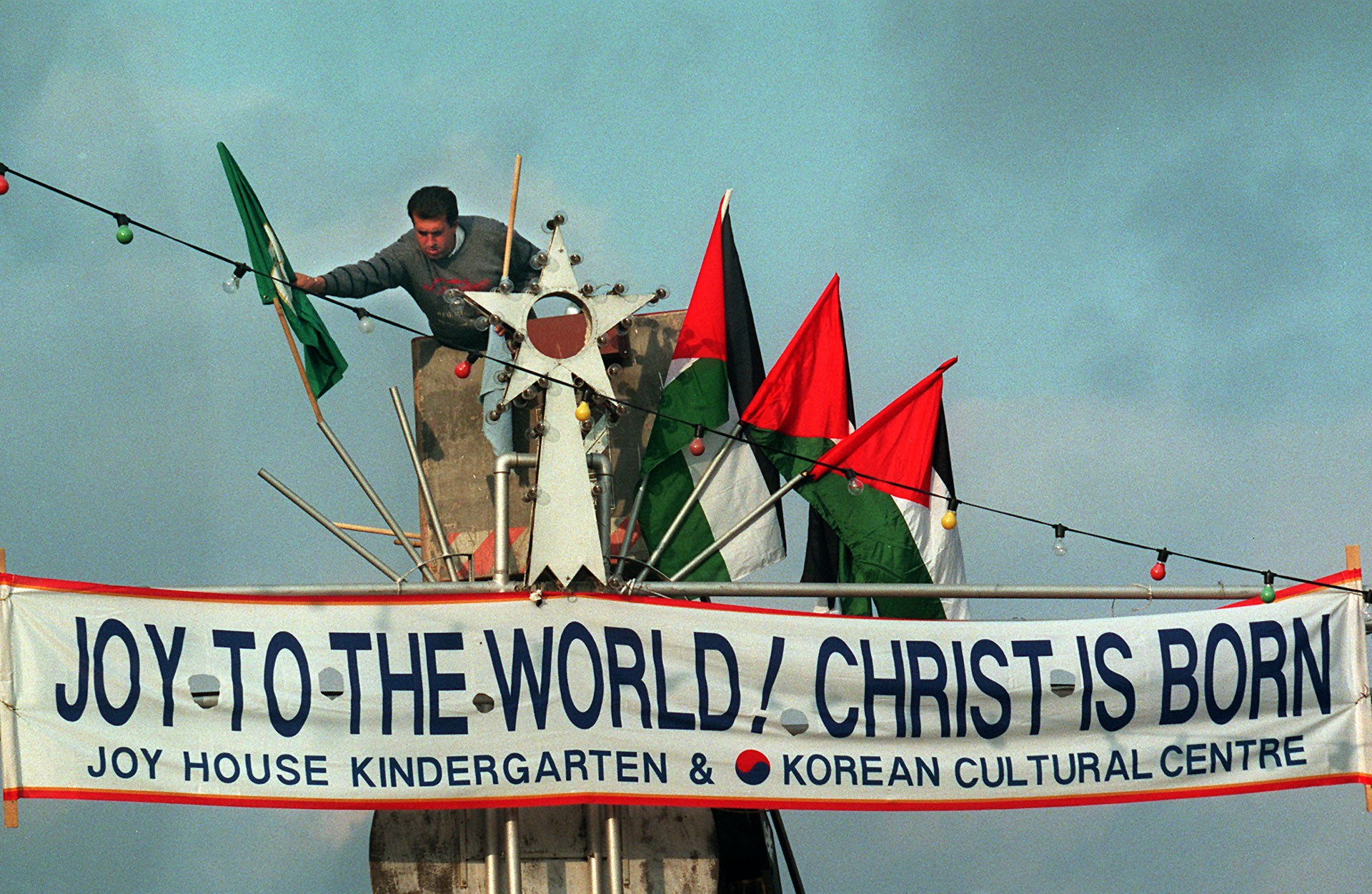
With carols, cookies and Christmas lights, December 25th marks the joy and celebration of the birth of Jesus for more than 2 billion Christians worldwide.
But a silent night falls on the 50,000 Christians in Palestine – a number that is falling rapidly.
The security of Christians in Palestine has been shaken by the bombing of Gaza’s oldest Greek Orthodox population Church of Saint Porphyry in October, which killed at least 18 people, including children. Also Israeli forces shot and killed An elderly Christian mother and her daughter in a Catholic church in Gaza on Saturday.
This year, the many joyful rituals that mark Christmas in Palestine are being replaced by simpler ceremonies, mourning and prayers that shine a harsh light on the region’s current reality. The Lutheran Church, for example, has the baby Jesus in one Nativity scene made from rubble and destruction.
Was Jesus Palestinian?
Many Christian schools of thought believe that Jesus was born in Bethlehem in the now Israeli-occupied West Bank.
“Jesus was born on our side the wall“Palestinian pastor Reverend Munther Isaac told Al Jazeera.
Isaac added that the narrative of Jesus’ birth in Bethlehem is supported by both archeology and writings such as the Gospel of Luke.
“The year is 2023 and on Christmas Day, all over the world, millions, so many, hundreds of millions, if not more, Christians are going to church, reading about Bethlehem, singing about Bethlehem and maybe thinking about Bethlehem as a mythical place, as a fairy tale without recognizing that it is a real place with people, with a Christian community that has kept the tradition alive for 2,000 years.”
What is the story of Christmas?
“While the family of Jesus was living in Nazareth at the time, they traveled from Nazareth to Bethlehem [census] Registration,” Isaac said with thoughtful pauses between his sentences.
Isaac drew parallels between the story of Jesus’ birth and the current situation in Palestine.
“We have always been under empires. We have always been displaced,” Isaac said, explaining that Jesus was born when Palestine was under the Roman Empire.
An imperial decree of the empire ordered Jesus’ family to register for the census in Bethlehem, added the Rev. Mitri Raheb, another Palestinian priest from Bethlehem. King Herod ordered the massacre of young boys, which led to Jesus’ family fleeing to Egypt as refugees, Isaac explained.
According to the Bible, Jesus was born in Bethlehem and then laid in a manger. The Church of the Nativity was built on this site, whose grotto is of great religious importance and attracts Christians from all over the world to the city of Bethlehem every Christmas.
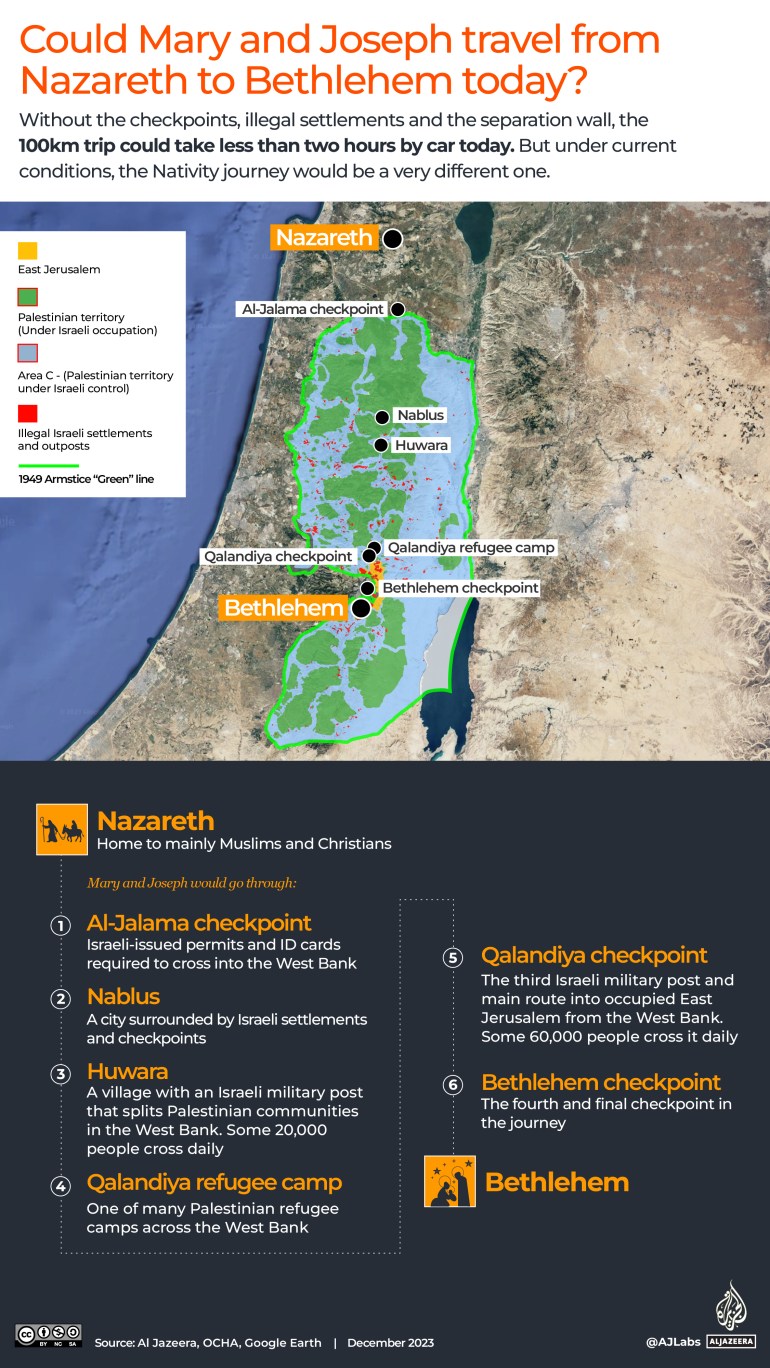
The Procession of the Patriarchs
One of the most important Christmas rituals in Palestine is the procession of the Patriarch from Jerusalem. This procession takes place on December 24th for Catholics 6th January for Orthodox patriarchs.
The established procession route, which was followed throughout the Ottoman Empire and during the British Mandate, is now anchored in tradition, Isaac explained. The Patriarch is received from Jerusalem in Bethlehem and then the procession moves through the streets of the Old City of Bethlehem until it reaches the Church of the Nativity, where prayers take place.
Israeli authorities and Palestinian police escort the procession, depending on the area the procession passes through.

The arrival of the procession is a celebrated festival, welcomed by several scout groups and bands from all over Palestine. People leave their homes to stroll around the city and experience the Christmas spirit.
This year the bands and scouts will not be present, instead the parade will be silent.
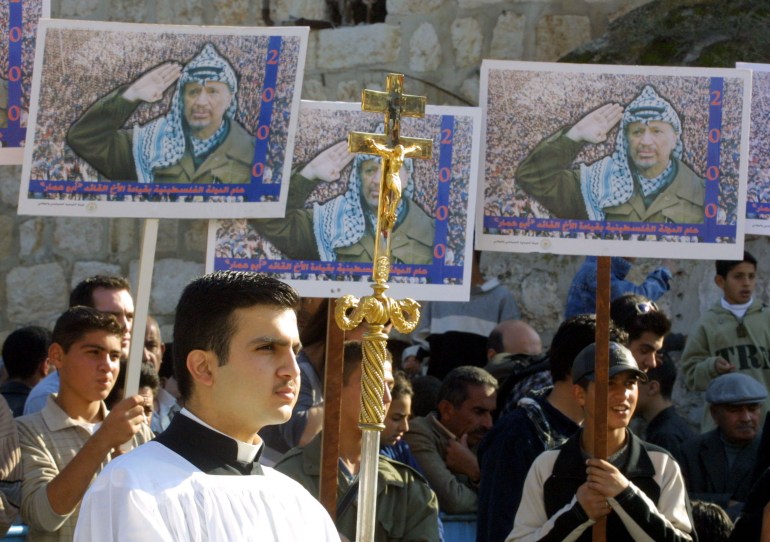
Midnight Mass and Manger Square
Once the procession reaches the church, prayers will begin at 5 p.m. local time and continue until midnight, with midnight mass broadcast for the entire world, Raheb said.
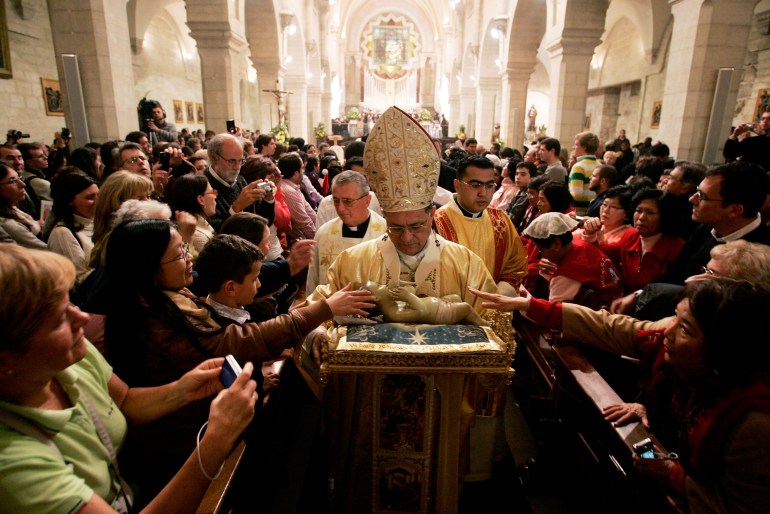
The nativity scene in Bethlehem is also decorated with a large Christmas tree and performances take place there. There is no Christmas tree in Manger Square this year. Instead, “civil society and some artists are working on a new type of nativity scene made from rubble as a symbol of what is happening in Gaza,” Raheb said. He added that a video showing what is happening in Gaza will be shown on the wall of the Church of the Nativity.
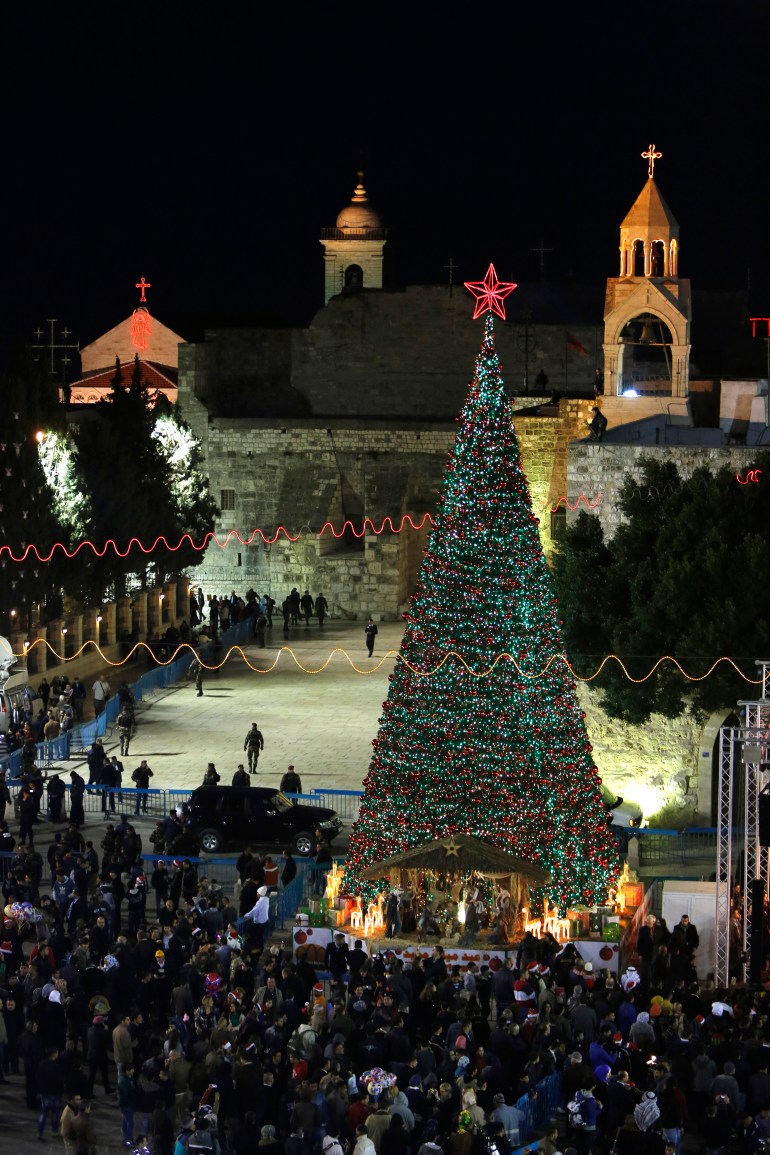
As a child, Isaac excitedly traveled to Jerusalem with his parents for Christmas shopping. Several markets sell festive clothing and decorations for the holidays. It is a tradition to buy the best clothes from Jerusalem and save them for Christmas.
“You know how you go to a big mall in America? We always went to Jerusalem. We can’t do it anymore,” Isaac said, alluding to the severity Approval rules in the region that restrict the mobility of Palestinians.
Christmas is a time when families come together, in Palestine and elsewhere. While family in the West might mean a small group of immediate relatives, “when I say ‘family’ in Bethlehem, I mean all of the 200 or so members of the Isaac family in our town – the clan,” Isaac said.
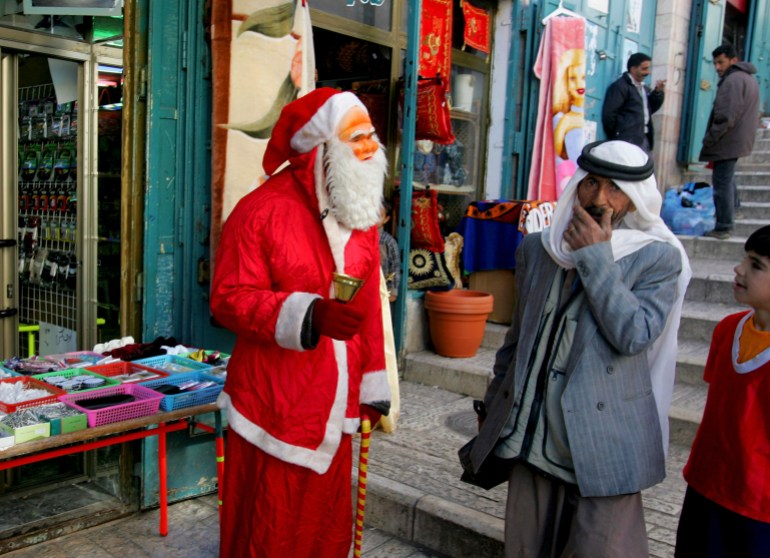
After a first large gathering of all family members, the individual houses are viewed. Rice and meat feasts are enjoyed and homemade desserts and delicacies are exchanged. These include ka’ek or ma’amoul – semolina cookies filled with dates or nuts.
Large Christmas trees are a highlight in every church where parties and banquets are organized. This year, parties have been canceled and “nobody feels like decorating a Christmas tree,” Isaac said.
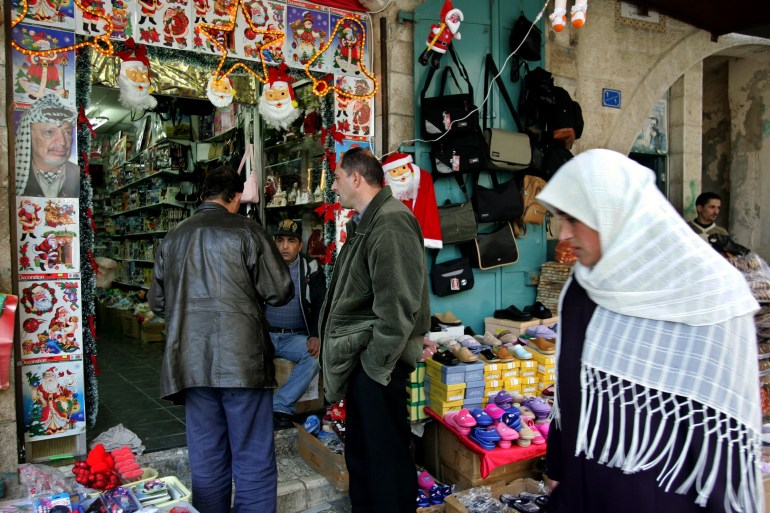
Do Muslims celebrate Christmas in Palestine?
Isaac explained that Christmas is a national holiday for all Palestinians and not just a Christian holiday. The Palestinian Authority considers it a national holiday and government offices are typically closed on Christmas Day.
Several Palestinian Muslims visit Bethlehem on Christmas to take part in the parade and take photos with the Christmas tree.
“After all, Jesus came from Bethlehem. And that means a lot to us as Palestinians,” Isaac said.


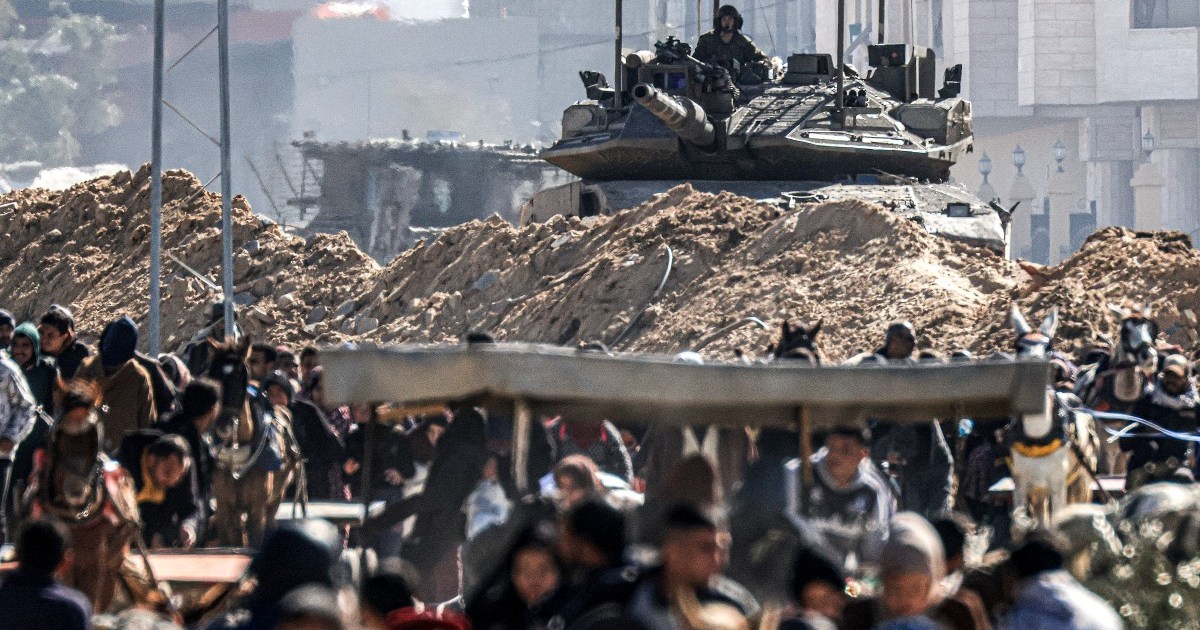
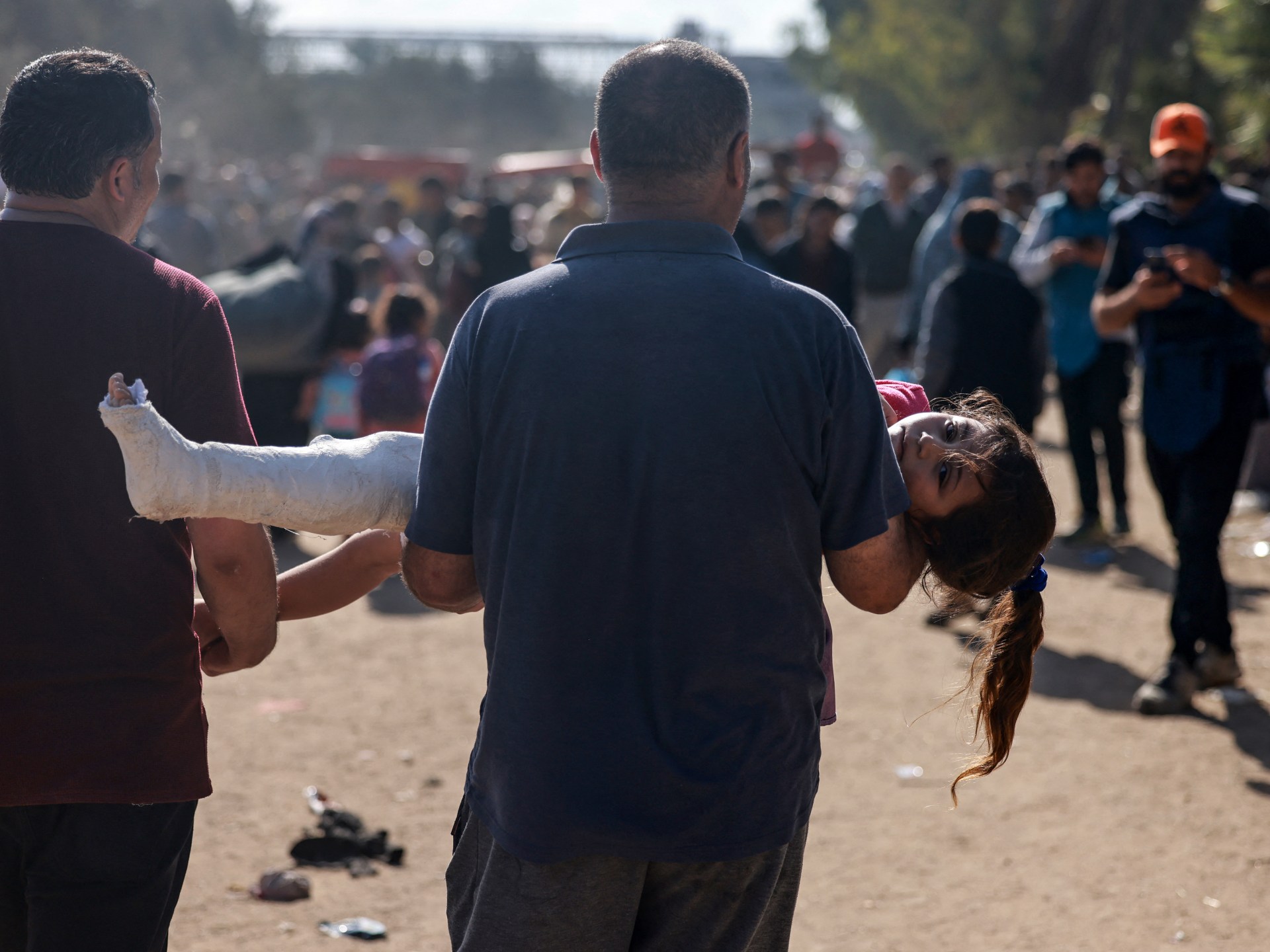


Recent Comments